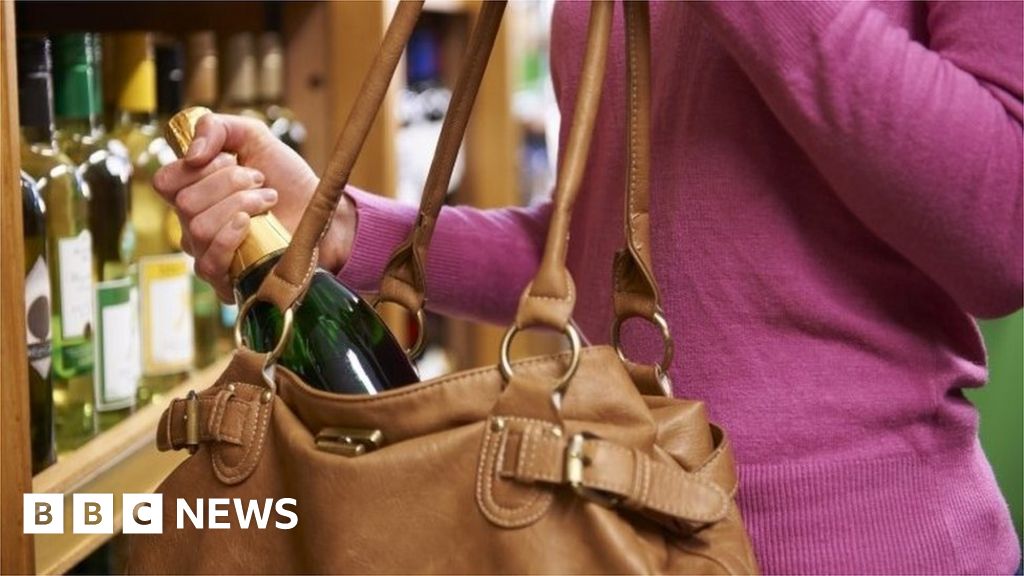Organised Shoplifting On The Rise, Says Waitrose

Waitrose is headquartered in Bracknell, Berkshire
Waitrose has reported a rise in shoplifting in its stores across the UK, as an MP said organised gangs were "operating with impunity".
The supermarket, headquartered in Bracknell, Berkshire, blamed steal-to-order gangs and anti-social behaviour.
The British Retail Consortium (BRC) said retail thefts across the sector in England and Wales rose by 26% in 2022.
In March, police forces in England, Wales and Northern Ireland recorded almost 33,000 incidents of shoplifting.
Data, analysed by the BBC, shows shoplifting offences have returned to pre-pandemic levels as the cost of living rises.
The John Lewis Partnership (JLP), which owns Waitrose, said that while it could not "speculate on the reasons", it was seeing "rising numbers of shoplifting offences - often by organised gangs as well as anti-social behaviour".
Image source, James Sunderland MP
MP James Sunderland said he had recently spoken with Waitrose partners in Bracknell
James Sunderland, Conservative MP for Bracknell, told the BBC: "Targeted shoplifting through organised retail crime is clearly on the rise.
"Gangs appear to be operating with impunity across the South East and there have been instances of violence to staff when they attempt to intervene, not just at Waitrose but all supermarkets."
JLP said that, while none of its staff had been seriously injured, some "have been threatened with weapons", with "clearly an emotional cost to them if they feel threatened at work".
Lucy Brown, director of security for JLP, told the BBC: "We're seeing a real increase - some are one-off offenders but the majority are shoplifting on a regular basis, switching across all retailers.
'Love-bombing'
Speaking on BBC Radio 4's You and Yours programme, she said: "They will use major transport infrastructure to hit every retailer in a particular town or city or high street.
"We're also seeing a rise in organised crime with groups targeting stores - they want to take high volumes and high value in one hit."
Tom Ironside, BRC director of business and regulation, said: "These high levels of theft cost retailers almost £1bn in 2021/22, money that would be better used to reduce prices and invest in a better customer experience."
He said retailers were having to spend "hundreds of millions" of pounds on security staff, CCTV, security tags and other anti-crime measures.
JLP said its stores used CCTV, private security and some staff wore body cameras.
Waitrose has also trialled "love-bombing" in some of its stores to deter would-be shoplifters - being extra attentive to customers, including by asking if help is needed at self-checkouts.
Nicki Juniper, head of security for Waitrose, said: "While it's a sector-wide issue, we've found a very Waitrose way to tackle it.
"We've long been known for our friendly service, but it turns out that the more attentive we are, the less likely people are to steal."
Image source, Getty Images
Stores are having to use CCTV among other security measures
Chris Noice, from the Association of Convenience Stores, said people stealing from shops were typically repeat offenders, with drug or alcohol addiction.
However, speaking to You and Yours, he said there was "also a lot of organised crime - people stealing to order".
"We know that because the items being stolen are those higher-value items like meat, alcohol, coffee, confectionery - the kind of items that can be sold on quite easily on social media or down the pub," he explained.
Mr Sunderland said the solution needed intelligence-driven policing, increased deterrence through heavier sentencing and additional security measures.
Follow BBC South on Facebook, Twitter, or Instagram. Send your story ideas to south.newsonline@bbc.co.uk.
Related Internet Links
The BBC is not responsible for the content of external sites.
From Chip War To Cloud War: The Next Frontier In Global Tech Competition
The global chip war, characterized by intense competition among nations and corporations for supremacy in semiconductor ... Read more
The High Stakes Of Tech Regulation: Security Risks And Market Dynamics
The influence of tech giants in the global economy continues to grow, raising crucial questions about how to balance sec... Read more
The Tyranny Of Instagram Interiors: Why It's Time To Break Free From Algorithm-Driven Aesthetics
Instagram has become a dominant force in shaping interior design trends, offering a seemingly endless stream of inspirat... Read more
The Data Crunch In AI: Strategies For Sustainability
Exploring solutions to the imminent exhaustion of internet data for AI training.As the artificial intelligence (AI) indu... Read more
Google Abandons Four-Year Effort To Remove Cookies From Chrome Browser
After four years of dedicated effort, Google has decided to abandon its plan to remove third-party cookies from its Chro... Read more
LinkedIn Embraces AI And Gamification To Drive User Engagement And Revenue
In an effort to tackle slowing revenue growth and enhance user engagement, LinkedIn is turning to artificial intelligenc... Read more

